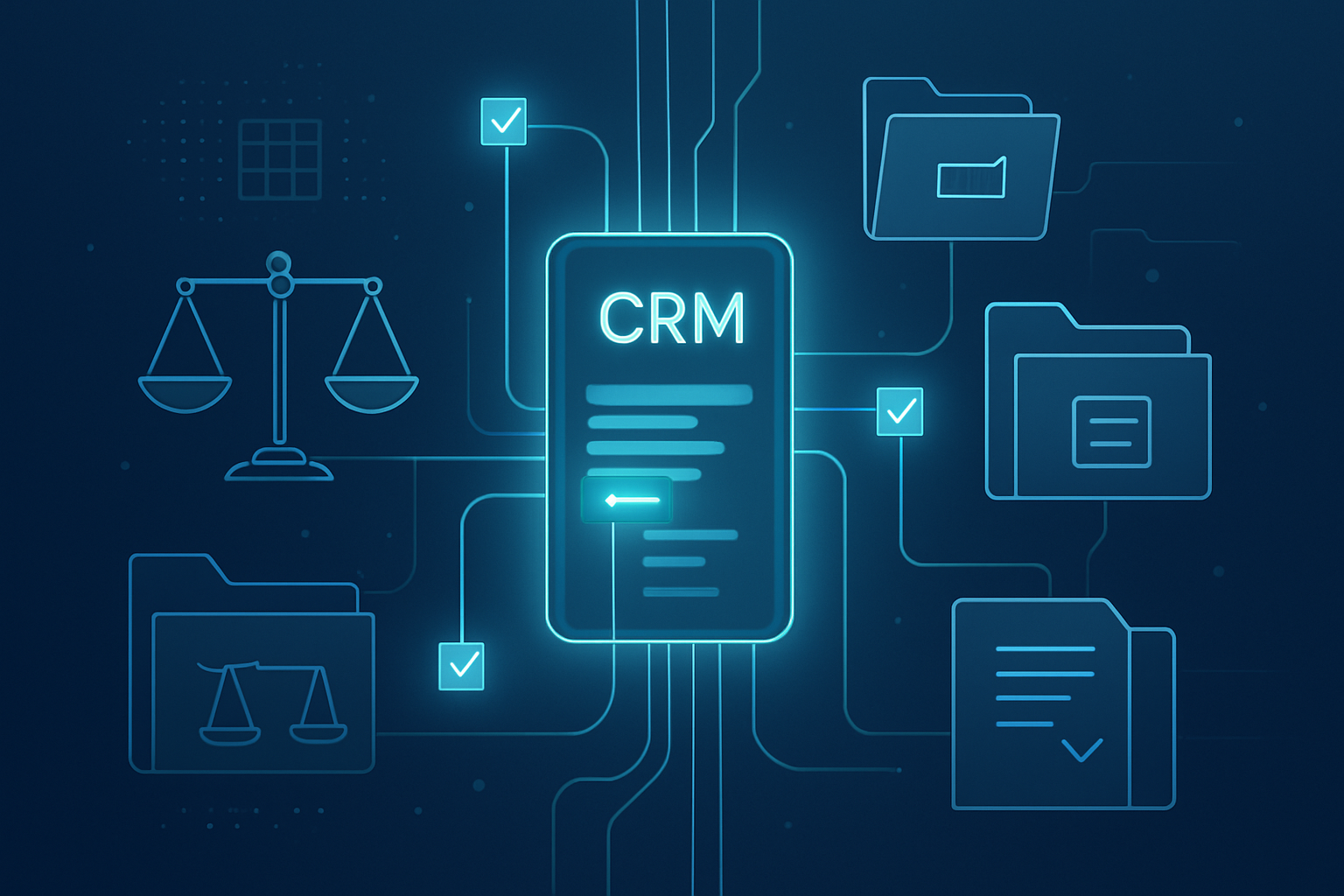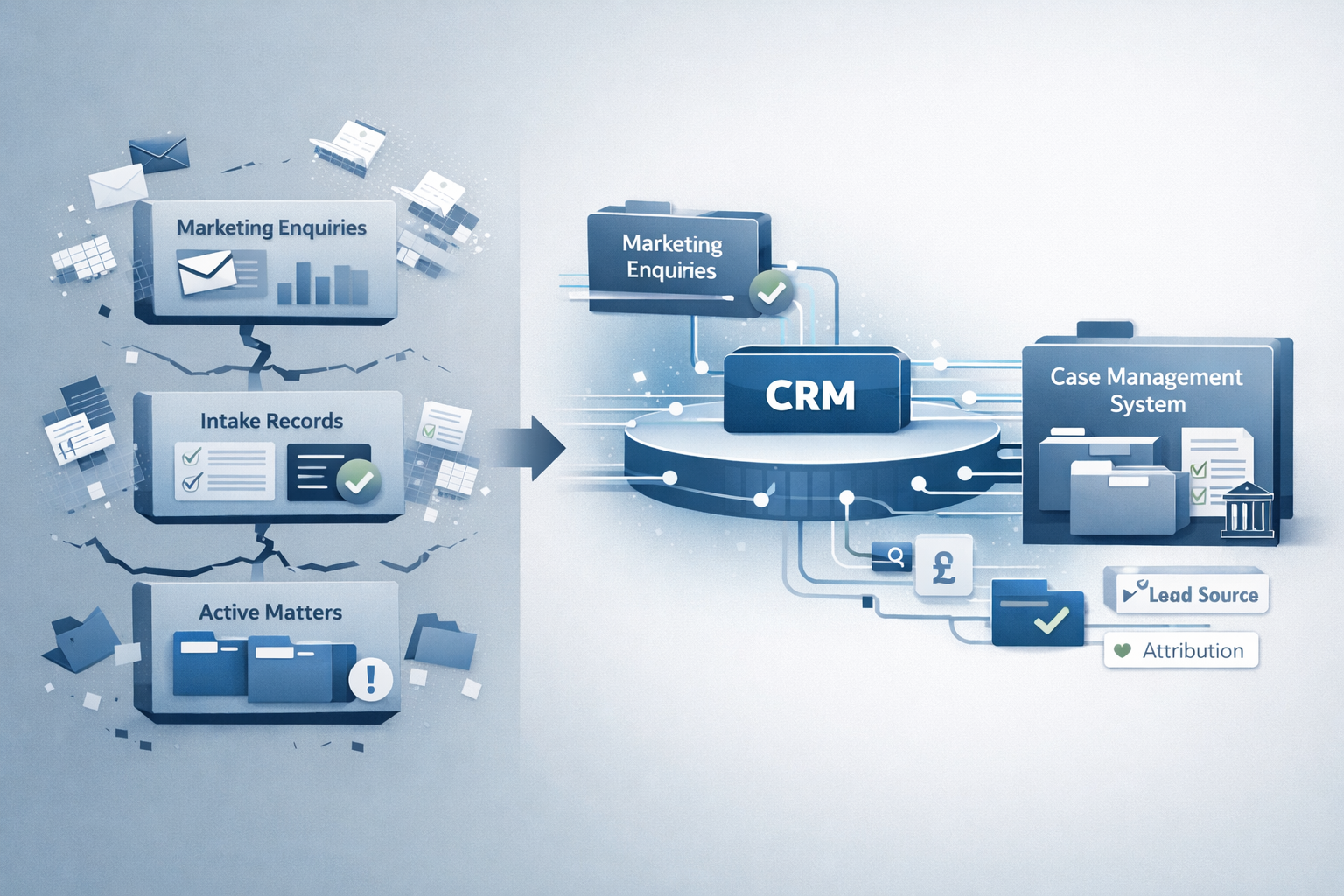Top AI tools for law firms in 2025 (and how to use them)
Digital Marketing
AI
Legal Sector

Listen to this article:
Why are law firms using AI?
The legal industry is at a crossroads.
Economic pressures are mounting as client budgets shrink and competition intensifies, yet client expectations remain as high as ever.
At the same time, your most skilled lawyers are bogged down by repetitive, time-consuming tasks that don’t fully tap into their expertise.
But your clients aren't paying premium rates for document formatting or basic research, they're paying for expertise and judgment. AI helps you deliver more of what they actually value by clearing away the busywork.
In this blog, we’ll explore how AI tools are being used across key areas of legal work, and take a closer look at how HubSpot’s AI features can enhance your marketing, sales and service workflows even further.
How can AI help your law firm?
AI can help law firms by improving efficiency across a number of areas, including client intake, contract review, content creation, research, and reporting - freeing up time, reducing errors, and increasing your firm’s profitability.
Streamlining client intake with AI
AI improves client intake by automating enquiry handling, qualification and appointment scheduling so that no lead is missed and staff time is protected.
This is where AI-powered intake systems come in. Clio Grow, for example, can ask qualifying questions specific to your practice areas, categorise enquiries by urgency and value, and route them to the appropriate fee earner.
Similarly, Smokeball’s automated form-filling capabilities are particularly valuable for firms handling high-volume, standardised work. It can prepopulate forms, contracts and other routine documents based on data, reducing the admin burden on your support staff.
Faster, smarter contract review and drafting
AI helps law firms review contracts faster and more accurately by spotting risks, inconsistencies and unusual clauses, then drafting templates based on firm standards.
Platforms like Luminance and Kira Systems use natural language processing trained in legal language to spot inconsistencies that might slip past human review. It flags unusual clauses, identifies terms that deviate from standards, and highlights any provisions that conflict with your firm's criteria.
For document drafting, these platforms generate first drafts of standard agreements based on your templates and client requirements; not replacing your legal judgment, but giving you a solid foundation that fee earners can then customise and refine as needed.
Your law firm’s AI toolkit
Legal research: Casetext, Harvey, Lexis+ AI
Contract review: Kira Systems, Luminance
CRM and client intake: HubSpot
Practice automation: Clio and Smokeball
Content and marketing AI: Jasper, ChatGPT, HubSpot Content Agent
Operations and reporting: HubSpot’s RevOps tools and dashboards
Using AI for compliant, effective legal marketing
AI supports legal marketing by helping firms draft professional content quickly, while staying compliant with legal advertising standards.
AI-driven content marketing offers a smart middle ground. With AI writing assistants like Jasper and ChatGPT, you can create compelling content up to professional standards, including draft articles about recent legal changes, newsletters explaining new legislation or social media posts to reach wider audiences.
The key is here to use these tools as drafting partners rather than content creators. Fee earners should still review, fact check and verify to make sure all content will pass compliance.
AI tools that simplify legal research
AI enhances legal research by dramatically reducing the time needed to find relevant case law, generate research memos and build legal arguments.
Harvey and Lexis+ AI work seamlessly with UK legal databases, which means you can conduct research across all relevant precedents. Instead of spending hours hunting through cases, Harvey can analyse data and draft research memos outlining key principles and potential arguments.
Casetext's CoCounsel takes this further by analysing factual scenarios and identifying comparable cases, which means you're less likely to miss critical case law, and more likely to deliver thorough, well-prepared advice.
"AI can enhance access to justice and efficiency, but only if lawyers remain deeply involved in how it’s designed, deployed, and governed."
— Professor Richard Susskind, Legal Futurist
Unlocking insights with AI-powered reporting
AI improves law firm reporting by providing real-time insights into performance, revenue and bottlenecks, which turns your raw data into usable business intelligence.
Efficiency is profit in the legal sector, yet many firms can’t answer basic questions, like which practice areas make the most money, how long matters actually take or where potential clients drop off. With AI-powered practice management systems, you can close gaps in visibility, whether it’s through tracking clients from first inquiry to case closure or spotting operational holdbacks.
What do HubSpot's AI tools offer law firms?
For firms looking to scale smarter, HubSpot’s built-in AI tools offer automation, insight, and better client engagement — all in one platform.
Streamline outreach and tracking
Prioritise high-value leads with AI lead scoring
Nurture clients from intake to referral
Automated content tailored to your brand
Visualise what's actually driving results
With HubSpot attribution and reporting, firms can see which campaigns and channels generate the most value across marketing, BD or recruitment.
Keep your tech stack connected
Can AI replace lawyers?
In short, it won't.
AI lacks the nuance, reasoning, and empathy lawyers need to deal with the complexities of legal situations. It’s like a lie detector: while it can measure certain responses, it’s not always accurate in understanding the full picture.
What it can replace are repetitive tasks like drafting contracts, summarising research segment leads, so your teams can spend more time on complex, billable work.
"AI will open up the world of legal services to a new generation of consumers by helping them work out how lawyers can assist with their problems."
— Professor Richard Susskind, Legal Futurist
The future of AI in legal services
AI won't change the fundamental nature of legal work, but it's reshaping everything around it: how firms attract clients, report on outcomes and maintain relationships.
Most importantly, AI gives you back two of your most valuable resources: time and mental bandwidth. It's a change you can start embracing today, armed with the right tools, the right partners, and a clear vision for what’s next.



